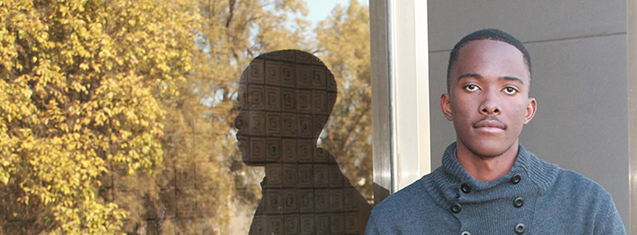
Tawanda Kaseke is on a mission to give back to the community one holiday at a time.
Studying towards a degree is one aspect of being a student. Investing time in worthwhile extra-mural activities forms a significant part of your student years. Tawanda Kaseke demonstrates how volunteering time to a good cause makes for a responsible student and citizen.
The second-year Public Administration student’s moral obligation to community development led him to spend approximately two months of his June 2015 holidays volunteering. Serving as a volunteer Admin intern at Afrika Tikkun’s ignited his aspiration to assist children from underprivileged communities to access education.
From cradle to career: a journey from infancy to varsity and beyond
Afrika Tikkun is a non-profit organisation (NGO) that works toward a future where today’s children and youth are tomorrow’s productive citizens. The NGO adopts a cradle-to-career model, which invests in the development of disadvantaged children from early infancy through young adulthood into the world of work.
Raising funds for the “Like Change” movement – a division of the “From Cradle to Career” project - is Tawanda’s primary objective for his November to February summer vacation.
Tawanda encourages social media users to contribute by clicking on the “Like” option on the ‘Like Change’ Facebook page. A private company automatically donates R35 towards the education of an underprivileged child on your behalf.
Making your mark begins with a dot; university holidays are Tawanda’s dot. A passion for community development and a willingness to volunteer one’s time can go a long way in making South Africa a better place.